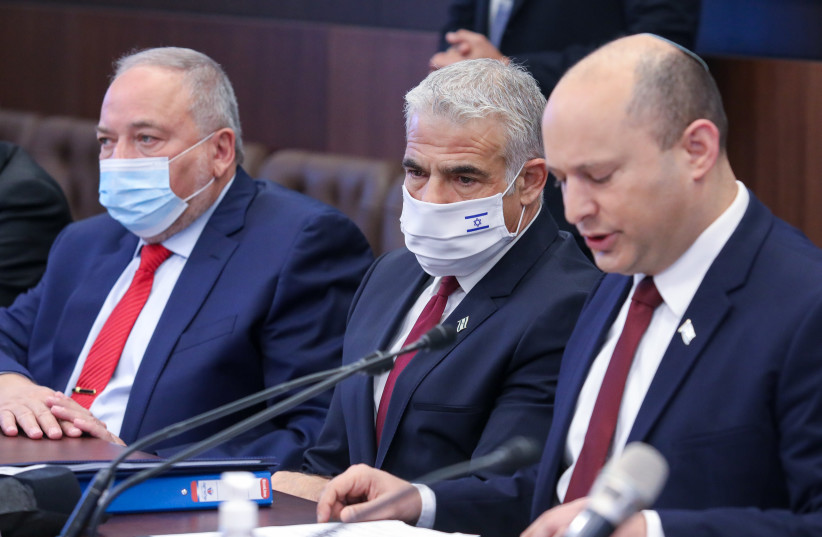As they announced the government’s new plan to reduce the cost of living in Israel, Prime Minister Naftali Bennett, Finance Minister Avigdor Liberman and Economy Minister Orna Barbivay stressed that they were focused on easing the plight of working families. While this is laudable, a lot more needs to be done to help all Israelis, especially regarding the core problem of the cost of living: the prices of food and other basic items need to be reduced.
In outlining the NIS 4.4 billion (about $1.4 billion) plan on Wednesday, Bennett explained the main steps in his own words:
- We will lower the (income) tax for every working parent by NIS 223 per month for every child age 6-12. For example, a two-parent family with three children in this age bracket that pays taxes will benefit from an additional NIS 1,300 in take-home pay every month.
- Second, we are lowering the customs duties and prices on a range of consumer goods, such as meat, fish, flour, eggs, furniture and kitchenware. The government will also share in the burden of the increase in electricity prices – the prices are going up, but we will bear part of the increase so that it will be felt less.
- Lastly, especially for low-wage-earners, they will receive a 20% increase in the work stipend that they receive.
Bennett said the plan would save the average Israeli family around NIS 10,488 a year. “Dear citizens, these are not just tactical steps to slow the increase in prices,” the prime minister declared. “This is a new contract between the state and its citizens, a fair contract, one that says that the good working citizens who share the burden of the state’s existence deserve to keep more of their salaries.”
The plan aims to benefit an estimated 530,000 working parents at the cost of NIS 2.1 billion to state coffers. The estimated monthly cost of living in Israel for a family of four, not including rent, is about NIS 12,390, while the average monthly salary is NIS 11,667.
The plan is indeed a welcome step in the right direction, and government assistance to families in this challenging time of the pandemic should definitely help them. But as Maariv’s economic analyst Yehuda Sharoni wrote: it is a bit like prescribing aspirin for a root canal.

“The economic plan to reduce the cost of living unveiled by the finance minister looks more like a position paper that was hastily drafted to give an immediate answer to complaints that the government has not seriously addressed the cost of living,” said Sharoni. “They are a collection of steps with no connection between them.”
Sharoni argues that until recently, Liberman did not even think of approaching manufacturers to stop dramatic price rises, and that the new measures do not meaningfully encourage the kind of competition necessary to cut costs.
To be fair, Liberman did announce the formation of a committee to investigate reducing monopolies and increasing competition in the food market. But criticism was aired even by members of the coalition, such as Labor MK Naama Lazimi, who called the measures insufficient.
“The public is dealing with a wave of price rises after many years of salary erosion and the narrowing of the social safety net,” she said. “The public deserves real tidings and not bread crumbs.”
The plan was announced amid widespread public outrage over rising costs including the prices of gasoline and electricity, and after several major manufacturers and importers suspended plans to raise the cost of goods. Some companies, such as Osem, even canceled planned hikes in food prices for the next year.
Price increases have been rolling in since October, but only in the past week has the government felt the urgency to respond with a plan, following massive media coverage and public pressure.
The main question to the government now is this: how are you going to stabilize or even bring down the prices of food, groceries and basic essentials that affect all Israelis? It’s good that you gave tax benefits to working families, but what about the cost of living for the rest of us?
